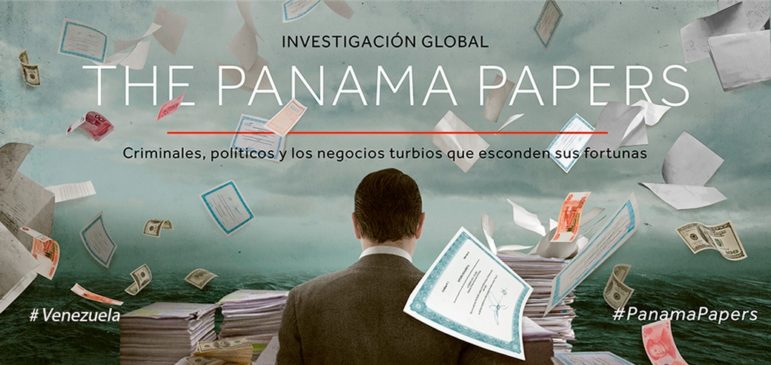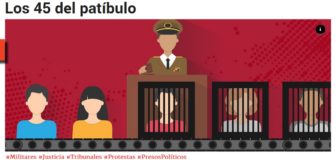
Venezuela’s May’s We Are Millions march. Source: Wikipedia creative commons.
Venezuela is currently in the midst of an economic, political and constitutional crisis. Amid widespread rationing, tensions between President Nicolás Maduro and members of the opposition continue to escalate. Amina Boubia of the Open Society Independent Journalism Program spoke with Ewald Scharfenberg, cofounder of GIJN member organization Armando.info, about the role investigative journalism has played — and continues to play — in Venezuelan politics. Scharfenberg will be speaking at #GIJC17 in November in Johannesburg.
How is the current crisis affecting journalists in Venezuela’s ability to do their jobs?
It’s very difficult on a daily basis. Due to the scarcity of food, we spend three to four hours per day to find some basic staples; this is time we cannot work. Violence also makes it difficult to move across the city, to go to work, because of the so-called guarimbas (protest barricades).
Similarly, when we need to go to the administration to get a document, our work is delayed. Productivity is down. Our lives are suspended and I fear that the situation is evolving towards open violence.
What role did Armando.info play in the Panama Papers project, and what lessons did you take from the experience that you’d share with investigative journalists elsewhere?
 We witnessed a turning point in April 2016 with our Panama Papers project [in Spanish], which had a global impact. But we don’t see ourselves as a supermarket for breaking news. Rather, we consider ourselves as a boutique specializing in good, well-documented, in-depth investigative stories.
We witnessed a turning point in April 2016 with our Panama Papers project [in Spanish], which had a global impact. But we don’t see ourselves as a supermarket for breaking news. Rather, we consider ourselves as a boutique specializing in good, well-documented, in-depth investigative stories.
We are not working like big media. So far, we publish on average only one story per week. The subjects we cover are complex and not easy to read. We tell of corruption, relating notably to investments abroad and tax havens.
How can investigative outfits like Armando.info maintain their credibility with a wide swathe of the population in a society as polarized as Venezuela?
For us, a key element is that we have published stories about not only the government but also the opposition. Recently, we published a story linked to “Lava Jato,” the huge corruption case that started in Brazil, about an irregular payment sent to an opposition MP through Panama.
It surprised some people who saw us as an anti-government outlet. We replied to them that we are not working against or for the government, but for the truth.
Given that investigative work usually takes time, what can Armando.info do under these circumstances?
We are keeping our regular work by providing facts, which remains crucial as it shows our audiences what we stand for. This has become even more important as social media, which now represent the most important channel to spread messages, contains lots of fake news, some of which is put out there by the interested parties.
 In the past few weeks, we have also published in-depth stories, like one about military justice, to shine a light on the structural roots of the current crisis. When people are arrested during a riot, they are not sent to a civil court, which should be the regular jurisdiction, but to a military court controlled by the government and the Ministry of Defense.
In the past few weeks, we have also published in-depth stories, like one about military justice, to shine a light on the structural roots of the current crisis. When people are arrested during a riot, they are not sent to a civil court, which should be the regular jurisdiction, but to a military court controlled by the government and the Ministry of Defense.
This military justice is a black hole. Nobody knows who is in charge and how the judges are designated. Our story is about exactly that. We explain how it works. It took us one year to gather the necessary data.
How has the general disarray affected your publishing schedule, if at all? With events happening so quickly, is there a temptation to speed up your usual process?
In some cases we try to publish more quickly to have an immediate impact on the situation. But we have to balance this aim with the verification of facts. When we publish something, we need to be sure it is true. In this situation it is particularly dangerous to publish unverified facts. It is a question of responsibility because anything could further fuel the conflict.
The current situation is also loosening loyalties to the regime. We are gaining new government sources to whom we did not have access at all until now. Before, such sources would not risk sharing information, but now everyone is thinking about preserving themselves and their interests.
How do you think the investigative work you have been doing during the past years has helped to hold the government accountable?
In Venezuela, traditional independent media has practically disappeared. In addition to the political pressure, rich stakeholders close to the government have purchased some of these newspapers to make sure stories do not damage their interests or the government.
The regime is about to complete 20 years of existence. During this time, we heard legends about extraordinary business deals transforming ordinary people into wealthy personalities, but without anyone managing to prove these rumors. Our main task has been to do exactly that.
Last year, with the Panama Papers we managed to prove, through documents, that a bodyguard of the late President Chavez was able to accumulate huge wealth in tax-haven islands. Eventually, the wider public, even those sympathetic to the Chavista cause, reacts.
What tips would you share with peers from across the world doing similar work?
As a regular participant of international investigative journalism conferences, I noticed that one of the main topics at these events is database projects. To me, more importantly, the focus should be more often on how to identify a story.
 At Armando.info this is our greatest strength. We combine new techniques involving databases with old school methods and traditional skills of veteran journalists relying on human sources, whom we have cultivated throughout our careers.
At Armando.info this is our greatest strength. We combine new techniques involving databases with old school methods and traditional skills of veteran journalists relying on human sources, whom we have cultivated throughout our careers.
For instance, a few months ago, we gained access to a database of Russian exports and imports to and from Venezuela — Russia being a close ally of our government. We identified a company created in 2010 with the support of Hugo Chavez, Orquídea S.A., to export flowers to Russia.
Eventually, we explained how the company received huge funds from the Venezuelan state without in fact exporting any flowers. I guess we have what we call journalistic sense: olfato periodístico.
 This post originally appeared on the Open Society Foundations website and is cross-posted here with permission.
This post originally appeared on the Open Society Foundations website and is cross-posted here with permission.
The Open Society Foundations work to build vibrant and tolerant societies whose governments are accountable and open to the participation of all people. They are a funder of GIJN.
